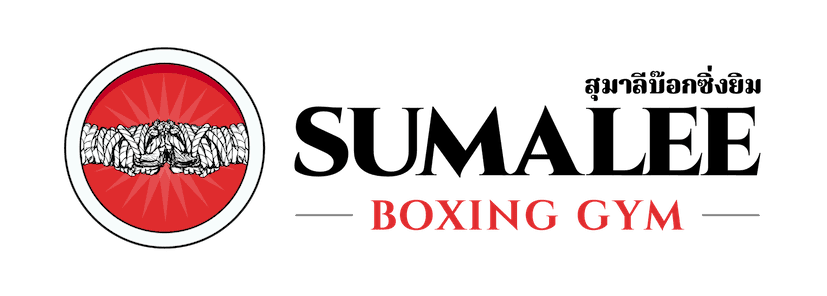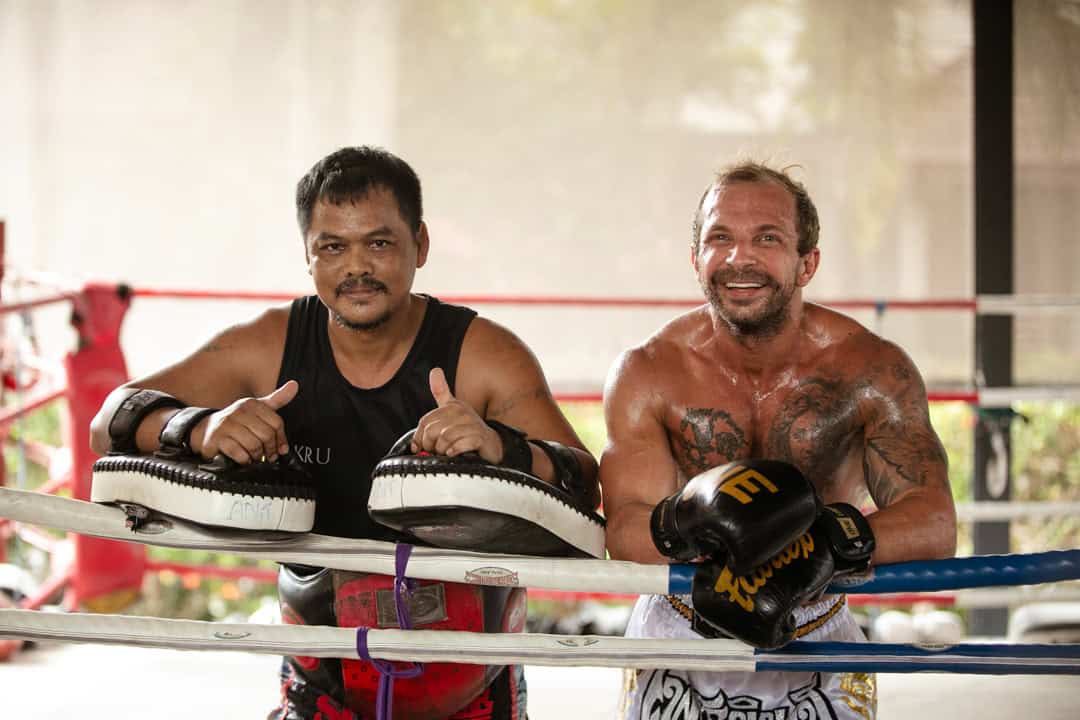
Muay Thai Etiquette: What You Need to Know Before Training in Thailand
Training Muay Thai in Thailand isn’t just about throwing a sharper teep or clinching harder. It’s about immersing yourself in a deeply respected martial art with centuries of cultural tradition. Whether you’re stepping into a high-end Bangkok gym or a beachside camp in Phuket, knowing how to behave in and around the gym is essential—not just to improve your training, but to earn the respect of your coaches and fellow nak muay.
The Heart of Muay Thai: Respect Above All
Respect is the cornerstone of Muay Thai. This begins the moment you step foot in the gym. In Thailand, your trainer isn’t just your coach—they are your kru, a teacher who deserves the same level of respect you’d offer a mentor or elder. You’ll typically greet them with a wai—the traditional Thai gesture of placing your palms together and bowing slightly. This should be done both before and after training.
You’ll also notice a natural hierarchy in most gyms. Senior fighters or long-time students, even if they aren’t officially teaching, are given space and deference. It’s best to observe and absorb how they move, train, and carry themselves. Speaking less and listening more is generally the fastest way to earn your place.
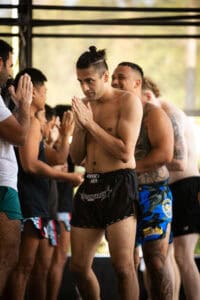
Dress and Hygiene: Yes, It Matters
What you wear—and how clean it is—says a lot about how seriously you take your training. While you don’t need to arrive in designer Muay Thai shorts, you should come dressed appropriately: clean training gear, a shirt on when you enter, and no beachwear or offensive slogans. Once you begin pad work or sparring, it’s common to remove your shirt if you’re male, but arriving shirtless from the start is seen as disrespectful.
Hygiene is equally important. You’ll be clinching, grappling, and sweating next to others in close quarters. If your gear reeks or you haven’t showered in days, trust us—people will notice. Take care of your personal hygiene as a sign of respect for your partners and trainers.

Cultural Awareness in the Gym
There are small but significant cultural practices in Thai gyms that can trip up unaware foreigners. One of the most important rules is to never step over the top rope when entering or exiting the ring. Always duck under. This is especially important for female students, as stepping over the top rope is considered highly disrespectful in traditional Muay Thai circles.
Similarly, avoid touching anyone’s head—whether it’s a coach, training partner, or fellow student. In Thai culture, the head is the most sacred part of the body, and touching it (even playfully) can cause real offense. Likewise, don’t point your feet at people or sacred objects like Buddha statues. And yes, you’ll be expected to take your shoes off before stepping onto the mats—keep them outside the training area.
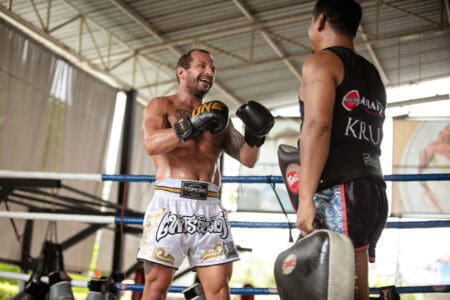
Being a Good Training Partner
It doesn’t matter if you’ve fought ten times back home or are stepping into the gym for the first time—everyone is expected to be humble and cooperative. Training is not the place to show off. It’s a shared space, and the way you behave impacts everyone else’s experience.
Keep talking to a minimum during sessions. Save socializing for breaks or after class. Listen carefully to instructions, and don’t interrupt the kru when they’re speaking. When sparring, treat it as a learning opportunity, not a fight. Go light unless specifically told otherwise. In Thailand, sparring is typically technical and controlled. If you go full blast trying to knock someone out, you’ll quickly be labelled as a dangerous liability—and probably won’t be asked to spar again.
Also, always clean up after yourself. Put pads and gloves back where they belong. Don’t leave sweaty gear on the floor, and definitely don’t borrow someone else’s equipment without asking.

Outside the Gym: Your Behaviour Still Counts
Your actions outside the gym matter too, especially if you’re staying at a gym that offers on-site accommodation. Showing up to training hungover or still smelling like last night’s bar crawl won’t win you any points. Some gyms will ask you to sit out entirely if they think you’re not fit to train.
In general, Thailand values humility, politeness, and self-control. Bragging about your experience, showing off your physique, or treating the local trainers like hired help will only isolate you from the community. The fastest way to fit in is to shut up, work hard, and treat everyone—Thai or foreigner—with the same level of respect.
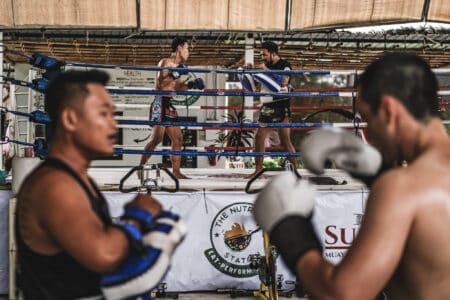
Final Thoughts: Earn Respect by Giving It
Training Muay Thai in Thailand is a privilege, not a right. You’re entering not just a gym, but a sacred space for the people who live and breathe this sport. Show respect to your kru, to the gym culture, and to your fellow students, and you’ll be welcomed into a global brotherhood and sisterhood that extends far beyond the ring.
So take your shoes off, bow your head, and get to work. The real journey is just beginning.
Here are some relevant links…
